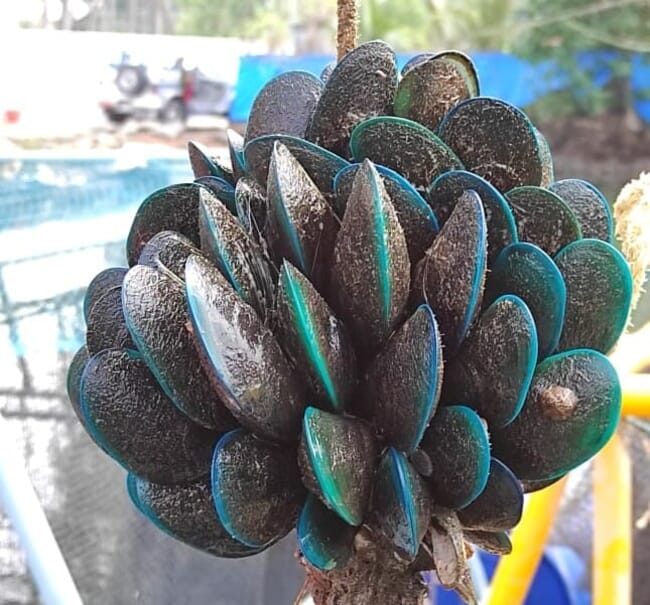
The project was undertaken by India’s Central Marine Fisheries Research Institute (CMFRI), working with fish farmers in Moothakunnam, Ernakulam.
CMFRI started the venture in December last year as part of its research initiative for developing a sustainable cage fish farming model suitable to Kerala’s ecosystem. In the first harvest among the three crops of the integrated farming, around one tonne of green mussel was produced from 150 strings hung around four fish cages.
The individual mussels grew to 72 g, which is a successful growth rate in mussel farming, according to CMFRI. Despite the harvest taking place during the Covid lockdown, the entire produce sold out quickly.
According to experts from the CMFRI, a good harvest with better growth rate of green mussel showed that IMTA is economically feasible and well suited to Kerala’s conditions. A scientific team led by Dr Shoji Joseph, principal scientist of CMFRI, also observed that the fish inside the cage attained better growth and seaweed being cultured around the cage showed healthy status, with a fast growth rate. The fish are due to be harvested by the end of June.
IMTA also helps to maintain environmental sustainability. “Excess nutrients and carbon dioxide from the cage farm are directly or indirectly utilised by green mussel and seaweeds,” said Dr Joseph.
CMFRI director Dr A Gopalakrishnan said that the institute would take steps to popularise IMTA around the coast.
“CMFRI has successfully developed a model of IMTA practice on open sea waters of Tamil Nadu which helps coastal people fetch increased income. The popularisation of this innovative technology, in line with the increasing trend of adoption of cage farming technology, will help transform the lives of coastal communities,” he said.


